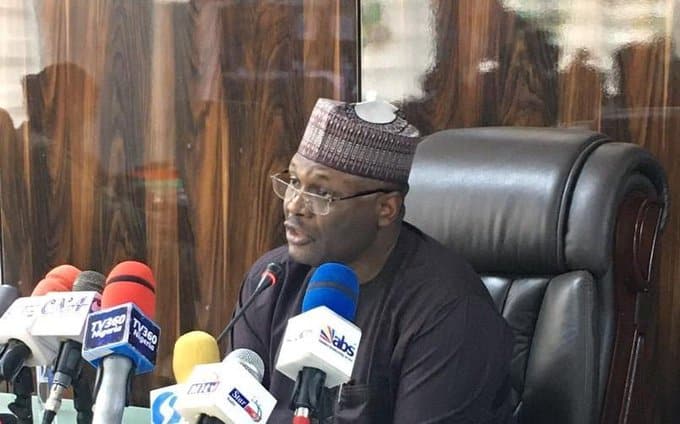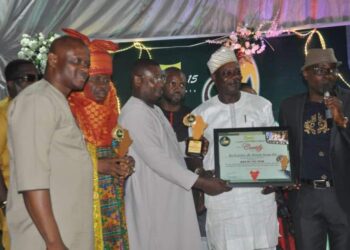The Independent National Electoral Commission (INEC) has said it is partnering with the Nigeria Bar Association (NBA) to prosecute 215 electoral offenders.
Mahmood Yakubu, INEC chairman, spoke on Tuesday during a meeting with resident electoral commissioners at the INEC headquarters, Abuja, as the commission begins its post-election review today.
The chairman acknowledged that there were some challenges during the 2023 general election, adding that INEC is currently looking at all evidence of infractions, including the prosecution of offenders.
“We are looking at the activities of all actors involved in the election, including some of our high-ranking officials,” he said.
“I can confirm that the police concluded its investigation of the conduct of our resident electoral commissioner in Adamawa state and submitted the case file to us.
“Appropriate action will be taken in a matter of days and Nigerians will be fully informed.
“I can also confirm that we have received 215 case files from the Nigeria police following their arrest and the conclusion of investigation into electoral offences arising from the 2023 general election.
“We are working with the Nigerian Bar Association (NBA) to prosecute the alleged offenders.”
Yakubu said the commission believes that the 2023 general election was one of the most meticulously prepared for in recent times.
He said despite challenges of insecurity, currency and fuel scarcity, the presidential and national assembly elections were held as scheduled.
“Learning from previous experiences, we started preparations immediately after the 2019 general election, carefully ticking the necessary boxes over a four-year period,” he said.
“It is the need to learn from both the positives and the shortcomings that makes the stock-taking that we are embarking on today essential.
“Accreditation of voters using the bimodal voter accreditation system (BVAS) has generally been scored very high by voters.
“Our records show that the success rate for BVAS accreditation stands at 98% compared to the smart card reader’s 29.2% during the 2019 general election.
“Above all, despite the divergent opinions about the outcome of the election, the overall outlook suggests that it is a fair reflection of a complex multi-party democracy.
“Today, five political parties produced state governors, seven parties won senatorial seats, eight are represented in the house of representatives and nine in state houses of assembly.
“Clearly, the 10th national assembly is certainly the most diverse in party representation since 1999.
“In some states around the country, different political parties control the legislative and executive arms of government.
“What is clear from these records also is that the days of single party dominance of our national politics are probably gone.”











